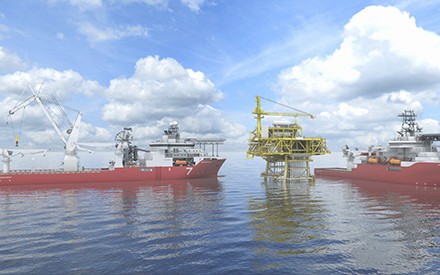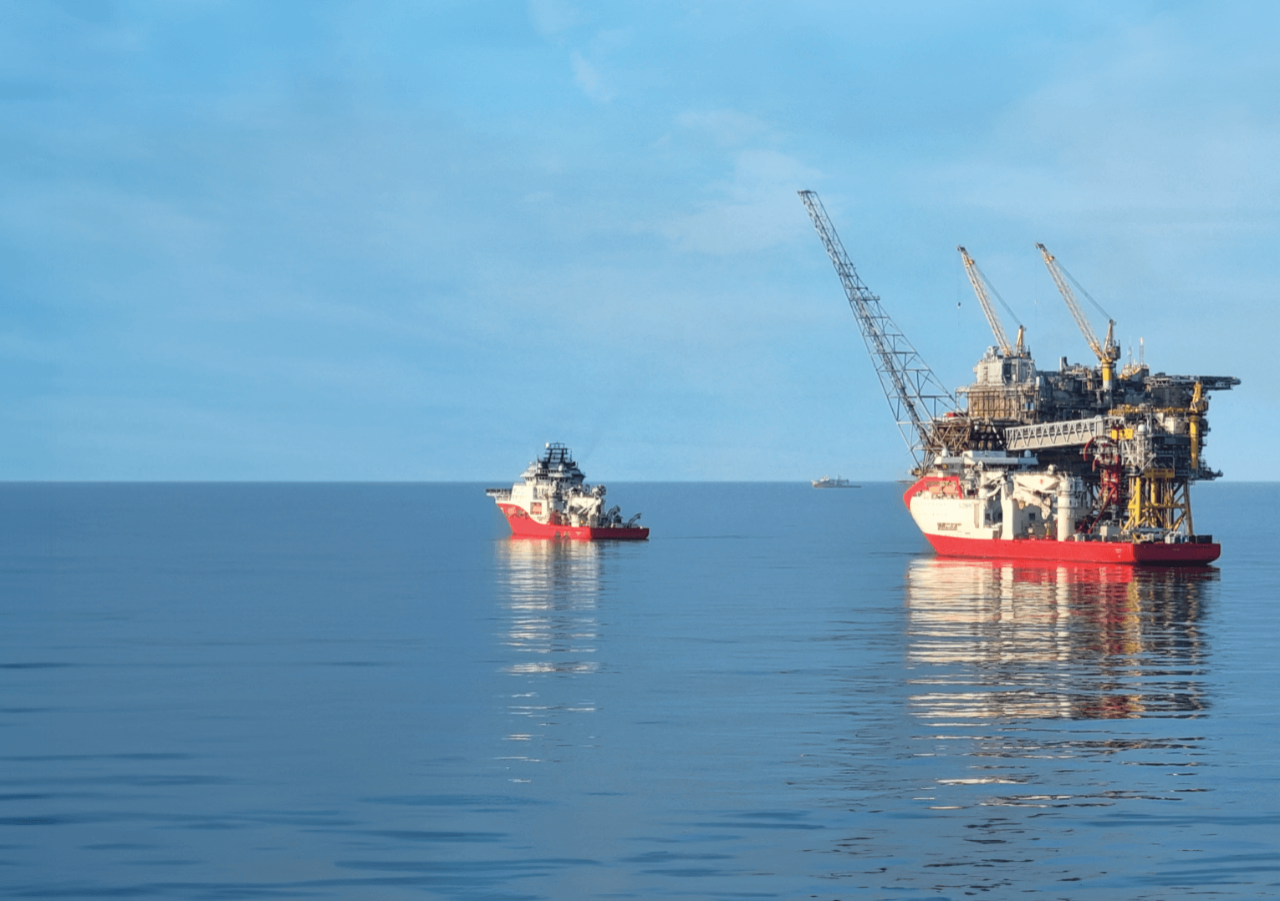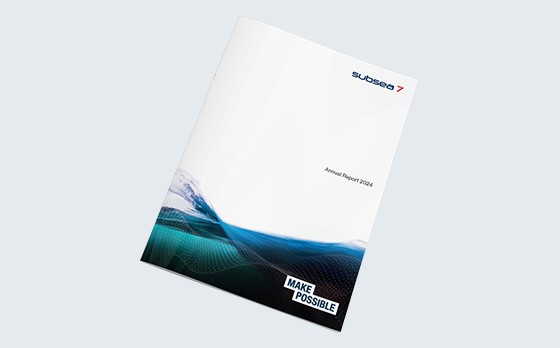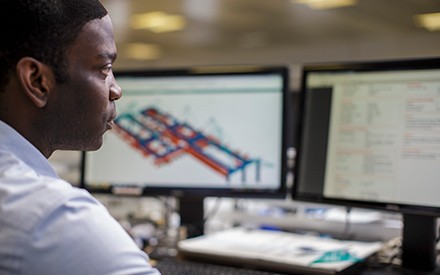Sustainability Strategy
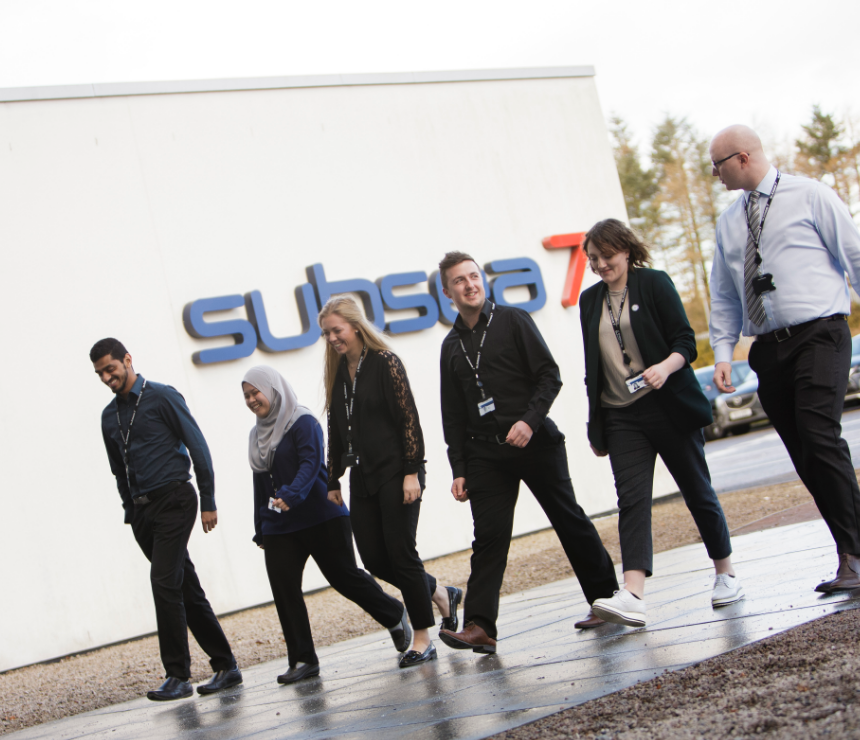
Our materiality assessment
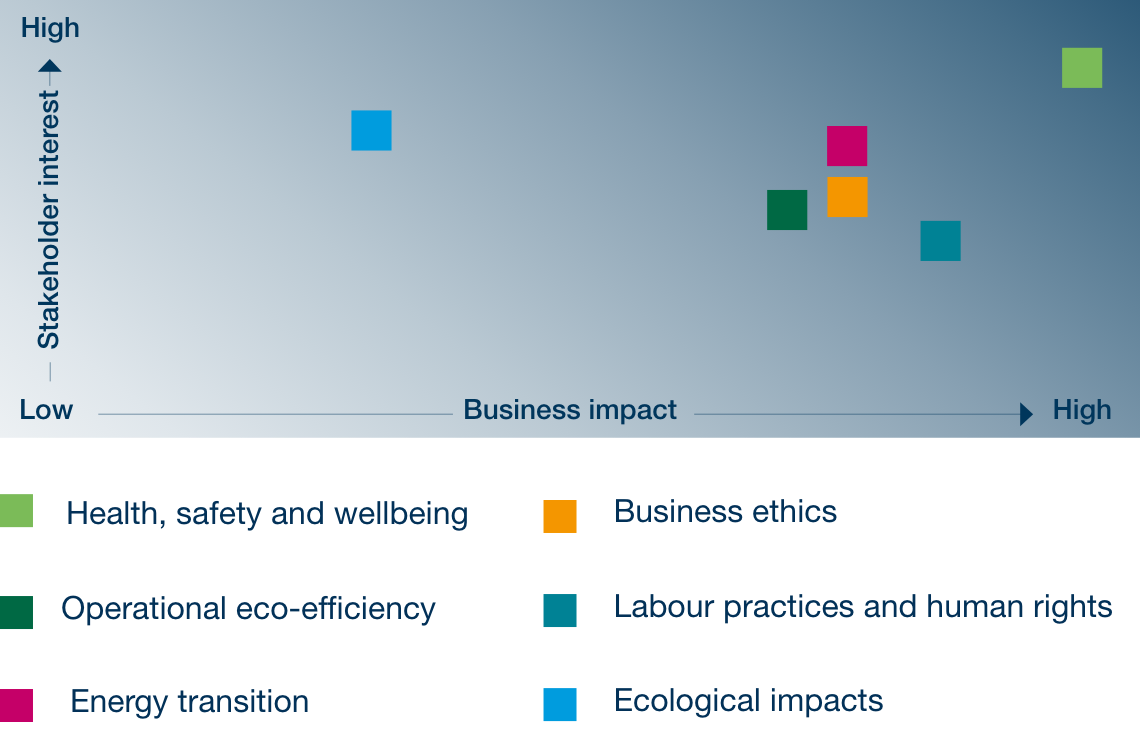
In 2019, we conducted a materiality assessment in collaboration with an independent specialist sustainability consultant. We gathered broad stakeholder feedback from our clients, our shareholders and our people and we observed the wider industry and scientific reports. This information was then analysed in detail to create a longlist of key topics. All the topics we discussed are important to us, but the longlist focused on those that apply to a wide range of stakeholders and have the greatest long-term impact on our future.
Outputs of the assessment are displayed on adjacent matrix.
During 2023, we have further aligned our materiality approach with the framework proposed by the EU Corporate Sustainability Reporting Directive (CSRD) by conducting a double materiality assessment. The results demonstrated a high level of convergence to the sustainability areas we have been focusing on since 2019. Further updates to our website will follow to reflect the latest double materiality assessment outcomes and the resulting material topics.
In order to remain focused on the most material topics going forward, we intend to carry out a refresh of our materiality assessment every three years.
Our stakeholders
Our stakeholders are important to us and we are aligning with their expectations on sustainability.
Society
Our society defines what is acceptable and what is expected in terms of corporate behaviour. We have a duty to respect the communities where we operate and the environments, we work in.
Clients
Our clients expect us to operate safely, efficiently, cleanly and with integrity.
People
Our people expect us to keep them safe, treat them with respect and be a good employer.
Shareholders
Our shareholders expect us to be fair, balanced and transparent in our interactions with the market around our approach to environmental, social and governance-related risks and opportunities.
Making a positive impact through our Sustainability Priorities
Our strategy is anchored by the six sustainability priorities and targets to help drive performance improvement towards a sustainable future, for our business, people, communities, and the planet.
Health, Safety & Wellbeing
Creating, maintaining, and promoting a safe, secure and healthy work environment.
How we can make an impact:
- Promoting safe and healthy workplaces across our value chain where employees feel welcome and secure
- Providing a workplace that encourages, supports and enables health and wellbeing choices and lifestyles
- Providing a workplace that is incident and injury-free at all times, everywhere
Energy Transition
Being the partner of choice for the transition of offshore energy towards a sustainable future.
How we can make an impact:
- Expanding our capabilities in the design, construction and installation of cost-effective fixed and floating wind farms and other offshore energy transition projects
- Being a leading supplier of solutions to the growing offshore energy transition sector
- Supporting our clients in their drive for lower-carbon and renewable energy solutions with our assets and our technology
Labour Practices & Human Rights
Providing working conditions aligned with international standards with respect to labour practices and human rights.
How we can make an impact:
- Applying the principles of Building Responsibly and the UN Global Compact within Subsea7 and actively monitoring compliance
- Ensuring broad understanding of Subsea7 expectations and commitments to the principles of Building Responsibly and the UN Global Compact
- Working with our suppliers and partners to see the principles of Building Responsibly and the UN Global Compact applied across the value chain
Business Ethics
Ensuring ethical business conduct and compliance by those working in and for the Company.
How we can make an impact:
- Embedding a culture of ethics, compliance and integrity
- Ensuring only those who uphold our commitments to ethical business conduct can work with or for us
- Ensuring we make a positive impact on business ethics in our sector, including the supply chain
Operational Eco-efficiency
Improving the environmental efficiency of our operations and our solutions in terms of greenhouse gas emissions and energy use.
How we can make an impact:
- Reducing emissions from our fleet
- Reducing our Scope 3 emissions to support our clients’ targets
- Working with our supply chain to offer lower-carbon alternatives to our clients
Ecological Impacts
Minimising the impact of our operational activities on marine and land-based ecosystems and biodiversity.
How we can make an impact:
- Recycling all of our waste
- Zero single-use plastics onshore and offshore
- Making a positive global impact on marine life in each country where we operate
You can also read more about Subsea7’s six sustainability priorities and the progress made in relation to each priority in our Sustainability Reports.

